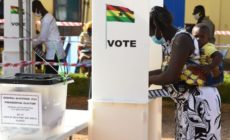Marijuana should be legalized in Ghana – Narcotics Control Board Exec. Sec.
- Posted on
- Comment
The Executive Secretary of the Narcotics Control Board (NACOB) can see some wisdom in the legalisation of cannabis sativa because increasingly, ordinary people do not think that possessing the mentally-disturbing substance is a crime.
Take or leave it, there is “a virtual legalisation” of marijuana because already “mothers, sisters, girlfriends and wives are using stuff made of Indian hemp” for their hair”, the tough-talking Yaw Akrasi Sarpong said on Accra-based Montie FM Monday.
Marijuana also called Indian hemp but locally referred to as ‘wee’ is said to be prevalent in the whole country. It is easy to grow as it takes between 12 to 16 weeks to cultivate.
A website dedicated to marijuana news in Ghana says a piece of it, enough for a ‘joint’, goes for 10 pesewas and an ounce for $100 dollars.
The Executive Secretary explained, dealers in the drug are domiciled in villages where their lavish cash, supports a subtle community welfare system.
This makes people in these villages shield dealers of the product from arrest.
Marijuana is a problem in every African country, Akrasi Sarpong pointed out – a fact corroborated by the United Nations. He says local consumption is so high, people are not as interested in exporting it.

He revealed, he has confidential sources who buy seeds to extract the oil which is used to make hair cream, meaning there is a market for its production.
Asked about concerns from the international community, Akrasi Sarpong noted despite international concerns, the U.S has legalised the substance in certain states because the Western nation does not consider marijuana a threat.
To the U.S, cocaine and heroine are a menace to its security – but not marijuana.
He is certain legalising marijuana, like some states in the U.S have done will help to regulate its use and reap huge profits.
According to him, regulation of marijuana use is a headache which we must tackle as a country.
He described the fear of international condemnation as akin to “the ostrich hiding his head in the sand” because marijuana is everywhere you go.
Tie-wearing graduates and professionals are not strangers to the substance usage, he explained.
He rationalised that “the social reality[is that] ordinary people think that what [we] are fighting is not a crime”.
“People must not shy away from discussing the matter”, he advised, although he personally is against legalising it.
He believes the banned substance, if regulated can benefit the country and is therefore calling for a national debate on the matter.
Bracing himself for a national debate on the matter, Akrasi Sarpong recommends it is time for the nation to confront one of its worst fears.
“Let’s face it”, he rallied.
Author: Edwin Appiah










 (Selorm) |
(Selorm) |  (Nana Kwesi)
(Nana Kwesi)